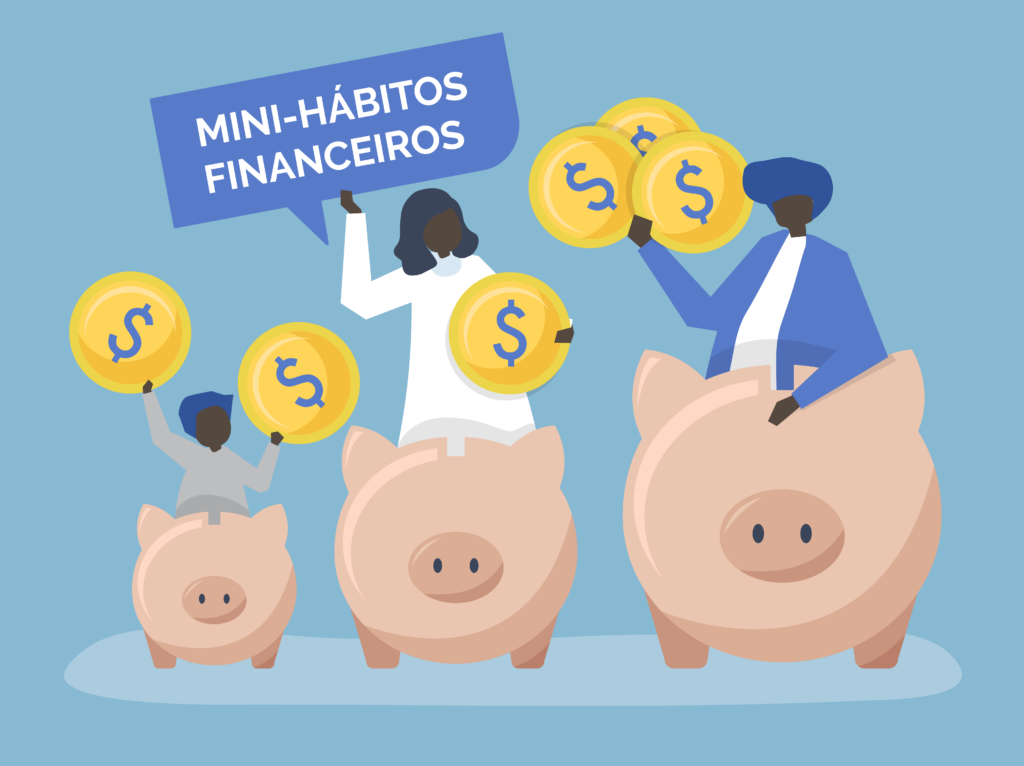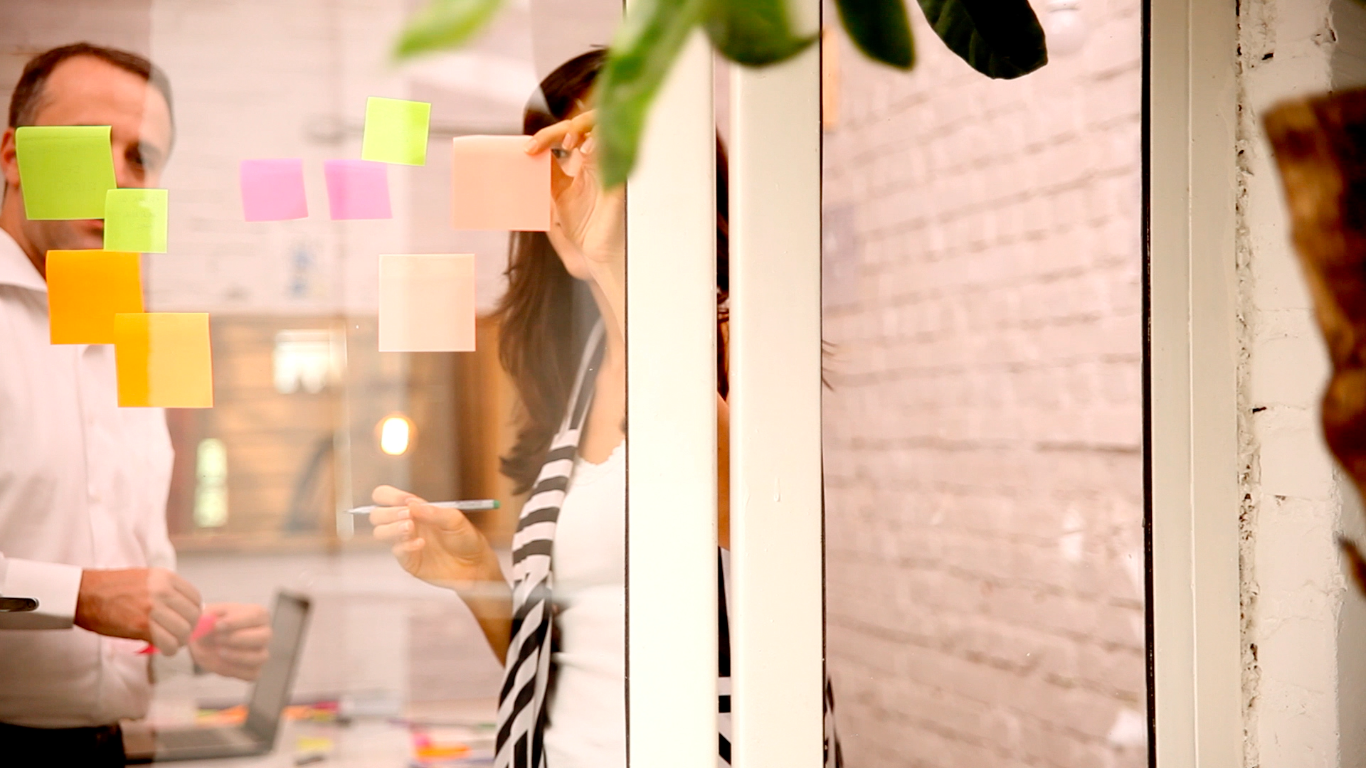- Account
- Commons Profile
- Activity
Raquel Neris (She/her/hers)
Service Designer I Learning Experience Designer I Digital Humanities student
-
EduCash
Economia comportamental na educação financeira
 Na última matéria no nosso blog, tratamos um pouco sobre a questão de que não somos tão racionais assim quando o assunto é tomar decis […]
Na última matéria no nosso blog, tratamos um pouco sobre a questão de que não somos tão racionais assim quando o assunto é tomar decis […] -
EduCash
Dinheiro e felicidade: como nosso comportamento altera expectativas
 Characters of people holding positive emoticons illustration Dizem que o dinheiro não traz felicidade, a satisfação plena pela vida. Ma […]
Characters of people holding positive emoticons illustration Dizem que o dinheiro não traz felicidade, a satisfação plena pela vida. Ma […] -
EduCash
5 mini-hábitos para pais e filhos na gestão financeira familiar
 Dando continuidade ao nosso post anterior, apresentaremos aqui algumas dicas úteis para que você dê início ao processo de mudança sua e da […]
Dando continuidade ao nosso post anterior, apresentaremos aqui algumas dicas úteis para que você dê início ao processo de mudança sua e da […] -
EduCash
O limite da racionalidade: como lidamos com o dinheiro em situações de risco
 Quando contamos com incertezas em nosso processo decisório, não há outra saída a não ser tomar algum grau de risco pela escolha. Isso é as […]
Quando contamos com incertezas em nosso processo decisório, não há outra saída a não ser tomar algum grau de risco pela escolha. Isso é as […] -
EduCash
O poder dos mini-hábitos na gestão financeira familiar
 Diante do atual cenário de crise financeira no mundo pós-pandemia, em que muitos chefes de família perderam seus empregos, ficou ainda ma […]
Diante do atual cenário de crise financeira no mundo pós-pandemia, em que muitos chefes de família perderam seus empregos, ficou ainda ma […] -
-
https://educar30.commons.gc.cuny.edu
Design Universal para Aprendizagem: o que é e como aplicar
 Crédito da imagem: Artem Podrez. O Universal Design for Learning (UDL), ou Design Universal para Aprendizagem, é um framework e […]
Crédito da imagem: Artem Podrez. O Universal Design for Learning (UDL), ou Design Universal para Aprendizagem, é um framework e […] -
https://educar30.commons.gc.cuny.edu
O que é a pedagogia que sustenta a cultura?
 Photo by Diva Plavalaguna. A pedagogia culturalmente sustentadora, uma tradução do termo em inglês Culturally Sustaining Pedagogy (C […]
Photo by Diva Plavalaguna. A pedagogia culturalmente sustentadora, uma tradução do termo em inglês Culturally Sustaining Pedagogy (C […] -
https://educar30.commons.gc.cuny.edu
Sete princípios para o ensino inteligente
 Como acontece a aprendizagem? Essa é a pergunta que o livro “How Learning Works: Seven Research-Based Principles for Smart Teaching”, […]
Como acontece a aprendizagem? Essa é a pergunta que o livro “How Learning Works: Seven Research-Based Principles for Smart Teaching”, […] -
https://educar30.commons.gc.cuny.edu
EduCash: educação financeira com games
 EduCash é um conjunto de games em que as crianças aprendem sobre finanças com o Edu, o porco astronauta. Ao viajar para planetas fant […]
EduCash é um conjunto de games em que as crianças aprendem sobre finanças com o Edu, o porco astronauta. Ao viajar para planetas fant […] -
https://educar30.commons.gc.cuny.edu
O que são tecnologias sociais para a educação?
 Tecnologias sociais são abordagens, metodologias, processos, técnicas ou ferramentas desenvolvidas com o objetivo de solucionar p […]
Tecnologias sociais são abordagens, metodologias, processos, técnicas ou ferramentas desenvolvidas com o objetivo de solucionar p […] -
English Learners in NYC
Ep #3 – Jussineia: Stand Up And LearnIn this episode, we have the story of Jussineia Silva, and ex-customer experience manager from São Paulo that came to New YorkRead More »
-
English Learners in NYC
Ep. #2 – Jacques: How Student-Centered Education Can Open DoorsIn this episode, we have the story of Jacques, a missionary from Burkina Faso that came to New York in 2014 with a dream: studying theology in an American institution to help spread Christian faith in West Africa. Episode transcription Jacques: The way they teach, a way that pushes you to think by yourself. __ THIS IS RAQUEL NERIS, AND YOU’RE LISTENING TO ENGLISH LEARNERS IN NEW YORK CITY. IN THIS EPISODE, WE HAVE THE STORY OF JACQUES, A MISSIONARY FROM BURKINA FASO THAT CAME TO NEW YORK IN 2014 WITH A DREAM: STUDYING THEOLOGY IN AN AMERICAN INSTITUTION TO HELP SPREAD CHRISTIAN FAITH IN WEST AFRICA. LET’S LISTEN TO HIS STORY. — Jacques: I am Jacques Bamogo and I was born in 1973 in Burkina Faso and, yes, I got the opportunity to come to the US in 2014 to visit, just to visit. Three or four months later I figured out that I could make a Visa change to become an international student in order to pursue my dream that is to complete my degree in theology in the US. I was looking a way to go to study in the US because I know that the education in the US is very good and ah, I don’t want to come back without having a diploma from the US. I was praying asking the Lord to help me and to open the door for me to be able to go to college and everything should start for me by the change of the visa, from tourist visa to F1 visa. — ONLY TO CLARIFY, YOU ACTUALLY CAN’T CHANGE YOUR VISA INSIDE THE US, WHICH WAS JACQUES’ SITUATION. WHAT YOU CAN DO IS CHANGE YOUR STATUS. IN OTHER WORDS, JACQUES CHANGED HIS STATUS FROM TOURIST TO STUDENT. IN HIS PASSPORT, HE HAD STILL A TOURIST VISA. FORTUNATELY, JACQUES SUCCEEDED, BUT CHANGING THE STATUS IN THE US IS RISKY AND MUCH MORE BUREAUCRATIC THAN GETTING THE VISA ITSELF. GETTING BACK TO JACQUES STORY, I WAS CURIOUS TO KNOW: WHY NEW YORK? —- Jacques: I came to New York because I had some friends in New York City that wanted me to come visit them and also when you are in Africa, speaking about the US, New York comes first, because it’s there that a lot of people come, a lot of places to visit. In Africa, New York is really known. Raquel: I see. And did you find, like, when you came, did you find a community from Burkina Faso? Jacques: Yes, one of my friends from Burkina who came to the United States long ago was the one who received me and let me stay with him, and we were living with other peers from Burkina Faso. We had a direction with each other and, ah, yes this is what we’ve been doing. Raquel: Ok, and you, when you came in 2014, did you already know how to speak English? Jacques: Ah, no, because I am from a French speaking country. In high school, in Burkina Faso, we had like three hours of English a week. And because we used to speak French, we kind of neglected that part, so when I came to the United States, I wasn’t able to, like, make a good sentence in English. Not have a lot of vocabulary, do not have any skills in speaking. In writing, I can read and write. The speaking was very hard for me. So I had to go to ESL classes after I changed the visa to learn how to speak and how to improve my English skills. — MOVING ABROAD TO LEARN A NEW LANGUAGE IS MORE EFFICIENT THAN TRYING TO LEARN IT IN YOUR HOME COUNTRY, NOT JUST BECAUSE IT TAKES YOU OUT OF YOUR COMFORT ZONE BUT ALSO BECAUSE YOU HAVE TO IMMERSE YOURSELF IN A NEW CULTURE. — Jacques: In New York City, you have to go to the stores, you have to go visit places, you have to meet people, and you have to speak English for people to understand you. It helps you to get to know the culture, American culture. It helps you to understand American history, and it’s gonna help you to be able to apply for college, and yeah, to get to engage in the US. — JACQUES IS CORRECT. HOWEVER, AS NEW YORK IS A CITY OF IMMIGRANTS, CULTURAL ENCLAVES CAN GET IN THE WAY WHEN IT COMES TO LEARNING ENGLISH OUTSIDE THE SCHOOL. AS PEOPLE FROM THE SAME COUNTRIES TEND TO LIVE IN THE SAME REGIONS, THEY FEEL COMFORTABLE USING THEIR LANGUAGE. THAT ALSO HAPPENED WITH JACQUES, WHO LIVED IN THE BRONX, ONE OF THE MAIN LOCATIONS OF THE BURKINA FASO COMMUNITY, ALONG WITH HARLEM, IN MANHATTAN. —- Jacques: Yeah, I can say it was, ah, really hard to learn English because, first of all, I lived, I was living with people from Burkina Faso. We don’t speak English, we just speak French when we are sitting together and, ah, it wasn’t easy because I go to school and I had vocabulary from the school but I could’t use them, because I don’t have anyone, a native person to speak to. So, I am by myself and I was the only one that was a student at that time. We were like six people in the apartment, all from Burkina, and I was the only one who was going to school. So, that’s why it took me like, five years to improve my English speaking, writing… Raquel: Yeah. Jacques: So you’re not improving —- ON THE OTHER HAND, FOR JACQUES, LEARNING ENGLISH IN SCHOOL WAS MORE THAN JUST LEARNING A NEW LANGUAGE: IT WAS A WAY TO MAKE FRIENDS AND TO DISCOVER A DIFFERENT KIND OF EDUCATION. ___ Jacques: It was exciting because I got to know how the education in the US was. It’s not the same as in Africa we are used to. Because here I saw that teachers are familiar with the students and want to help them. And they were very good, even if you can’t pronounce something, they are not making fun of you, they are trying to help you get there and I liked it because at the beginning it was so hard for me to say things. And I saw the engagement, I saw the sacrifice, I saw the love from the teachers and I appreciated that because it helped me a lot to be confident at school, wanting to talk to other people, and at school I made a lot of friends from other countries. It was very good. And I had to spend a lot of hours at school in the morning, from 7am to 1pm, 1:30pm I should be at school. I had to wake up in the morning, and by 6am I had to take the subway to go to school. Yes, it wasn’t easy but I liked it. —- I CONFESS THAT I WASN’T EXPECTING JACQUES TO BE SO IMPRESSED WITH THE LEARNING METHODS HE EXPERIENCED IN HIS ENGLISH SCHOOL. AND THAT’S WHY I STARTED WONDERING: WHAT WAS HIS STORY AS A STUDENT IN BURKINA? ___ Jacques: The interaction between the students and the teachers is completely different because in my country the teacher, they only master of class. When he comes to class, you have to stay quiet and listen to him until he finishes. And after that, they are not available to help you if you want them, and it’s not easy. There is a distance between students and teachers. I don’t see this gap in the US. Instead, students and teachers, they have become friends, very helpful for someone who is learning. Because the fear you had toward your teacher, there’s no more fear, and you can talk to him as your friend, you can call him by his name. And the way they teach, it’s a way that pushes you to think by yourself. You don’t have to receive everything from the teacher, it’s like an interaction. You say something, you discuss the thing, what is your opinion, you say your opinion and the teacher adds something to just, he is leading you to do right, the right spot, and I love it. —- AFTER UNDERSTANDING HIS STORY AS A STUDENT IN HIS COUNTRY, I REALIZED HOW I TOOK FOR GRANTED MY SCHOOL YEARS, IN WHICH PROFESSORS WERE NOT SO AUTHORITARIAN. I ALSO NOTICED HOW STUDENT-CENTERED EDUCATION IS FUNDAMENTAL FOR INTERNATIONAL ENGLISH LEARNERS, AS IT WAS KEY FOR JACQUES TO START A NEW CHAPTER IN HIS LIFE. ___ Jacques: So I started my English classes in 2016 to 2019. Raquel: Oh, so you did not study during the pandemic, right? Jacques: No, At that time I was in college. I was graduated from college in last May, 2022. Raquel: Nice. Where did you study? Jacques: At Grant College, Minessotta. I requested for the OPT, so that’s why I had to come to New York City. — JUST AS A REMINDER, OPT STANDS FOR OPTIONAL PRACTICAL TRAINING, WHICH IS A PERIOD THAT UNDERGRADUATE AND GRADUATE STUDENTS WITH F-1 STATUS ARE PERMITTED TO WORK TOWARDS GETTING PRACTICAL TRAINING TO COMPLEMENT THEIR EDUCATION. – Jacques: I am working with a branch of the CMA, the Christian and the Missionary Alliance, a mission branch that is called Envision. The mission and the vision is to reach out least people from West Africa with the Gospel. They don’t have the opportunity to hear the Gospel because they don’t speak English, so they can understand what is the love of God for them, so because I speak the language, I can, like, help them to understand the meaning of the gospel and to help them receive salvation from Jesus. Raquel: You accomplish your dream, right? Jacques: Yes. Raquel: Do you plan in staying in the US or do you plan in returning to Burkina? How are your plans? Jacques: I’m planning to return but I want to have some experience in the US, so… I have a lot of skills, and experience in how to help people grow in their spiritual life. And the way, the teaching style, and how to decide for people, all of this I have to get a lot of experience, so I can out help people. — IT SEEMED TO ME THAT JACQUES HAD ACCOMPLISHED HIS DREAM. HOWEVER, HIS SACRIFICE WAS EVEN HIGHER THAN I THOUGHT. — Jacques: Yes, I was married in 2002. And in 2014, when I was coming to the US, we had three sons, and the youngest was just like six months. And when I came, it was seven years later, in 2021, my family got the opportunity to join me in the US, here. Because of the F1 visa, they allowed me to apply for F2 for my family members. So God has inserted prayers for them to come join me here. They stayed with me in Minnesota until I finish my studies, and now we are together in New York City Raquel: Wow! And, and how was their adaptation to New York? Jacques: Not easy, but… my wife, she doesn’t speak English and it’s not easy to go to stores or visit places, so I always have to help her and help the kids too because it’s not easy to walk around in New York City. — Raquel: AT THE END OF OUR CONVERSATION, I ASKED JACQUES TO SHARE HIS ADVICES. – Jacques: My advice is that if you have the chance to come to the US, I want to tell you to dream big. Because the US offers great opportunities to help you make your dream become true. If you are persistent and you keep doing what you want to do, doors will open for you. So, for international students, don’t give up. In the first time, you are going to go through difficult time, specially for those who need to go to ESL classes, it’s not easy to learn English, improve your English and everything, but you need to continue, you need to be hard worker, to be persistent like I said, as you continue to make, like, efforts, to accomplish your dream, you will see that it will be easy for you later. I say that for me it wasn’t easy, but because I didn’t give up, people that I lived, they were telling me to give up from studying, but I said no, I won’t give up, because this is the only opportunity that has been given to me. If they allowed to become an F1 Visa, so I will continue until I see a door open. And, yes, God has opened the door for me, so… ___ Raquel: THIS WAS THE STORY OF JACQUES, A MISSIONARY FROM BURKINA FASO WHOSE TESTIMONY SHOWS HOW PERSISTENCE AND FAITH CAN MAKE YOU GO FAR. IT ALSO PROVES HOW STUDENT-CENTERED EDUCATION IN ESL SCHOOLS IS FUNDAMENTAL, NOT ONLY FOR LEARNING A NEW LANGUAGE BUT ALSO FOR PROMOTING SELF-CONFIDENCE, ENGAGEMENT, AND CARE. IN CASE YOU ARE AN INTERNATIONAL ENGLISH LEARNER IN NEW YORK CITY OR HAVE HAD THIS EXPERIENCE IN THE PAST, PLEASE SHARE YOUR STORY WITH US. WE WANT TO GIVE YOU VOICE. SEE YOU IN TRead More »Ep. #2 – Jacques: How Student-Centered Education Can Open Doors
-
Raquel Neris (She/her/hers)'s profile was updated
- Load More

